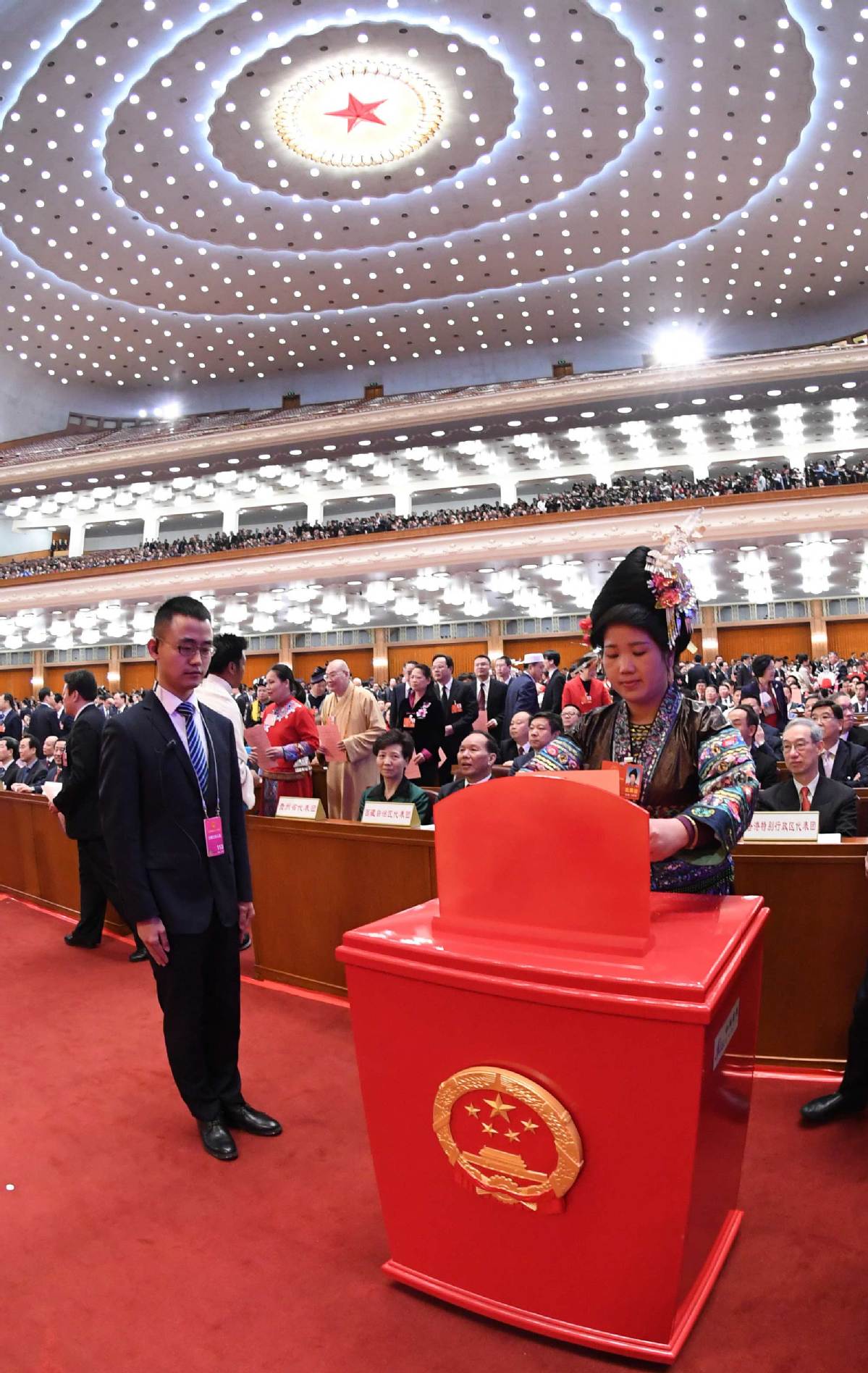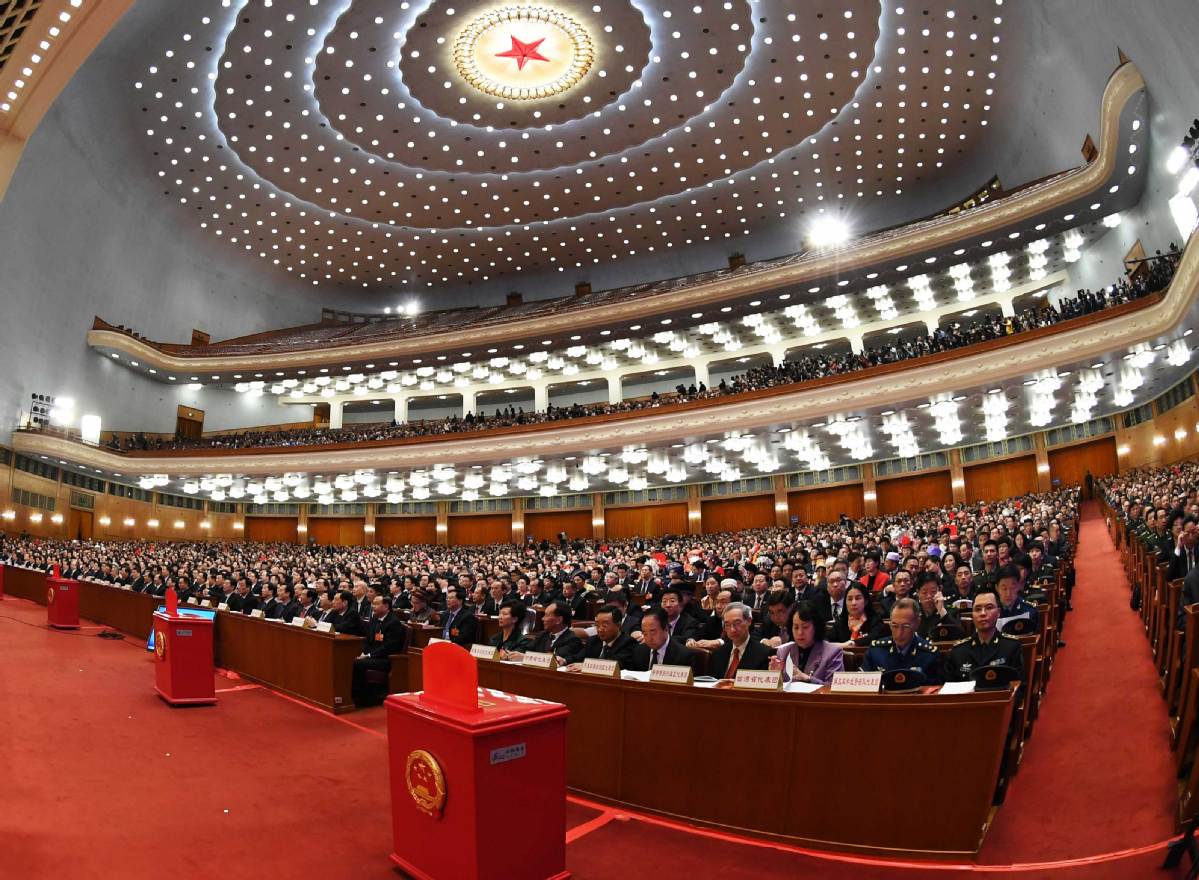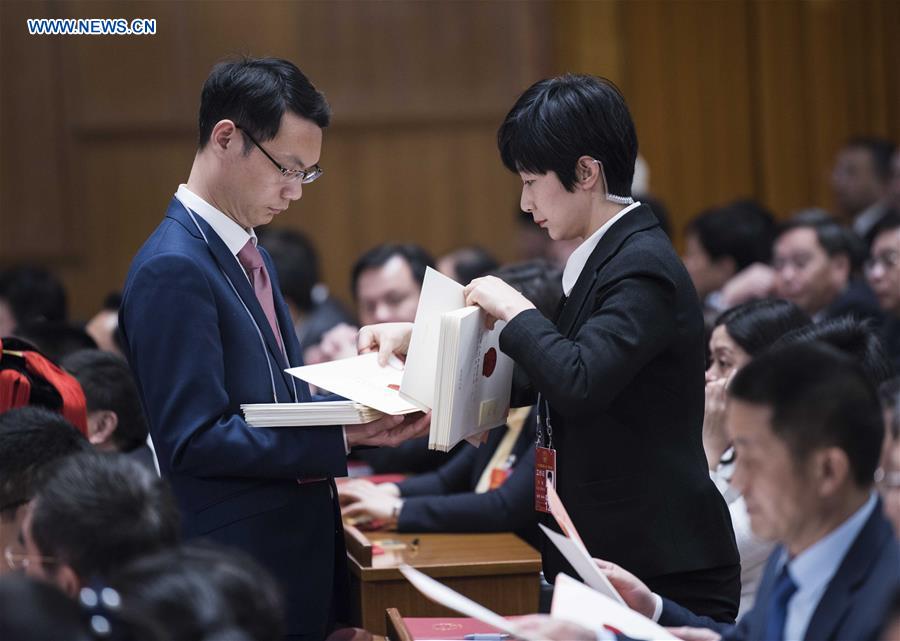NPC passes Constitution update


Amendment, first since 2004, includes provisions reinforcing country's goals
The National People's Congress, China's top legislature, adopted a landmark amendment to the country's Constitution by secret ballot on Sunday, enshrining Xi Jinping Thought on Socialism with Chinese Characteristics for a New Era into the fundamental law.
The adoption of the first amendment to the Constitution in 14 years won the almost unanimous support of lawmakers, with 2,958 in favor, two against and three abstentions.
The amendment lists supervisory commissions as new State organs.
China's commitment to the path of peace and development, mutual benefits, win-win cooperation, opening-up and building a community with a shared future for mankind were written into the Constitution.
The national legislature wrote into the Constitution that "the leadership of the Communist Party of China is the defining feature of socialism with Chinese characteristics".

That new sentence reflects the fundamental, comprehensive and contemporary nature of the Party's leadership, said Shen Chunyao, chairman of the Commission for Legislative Affairs of the NPC Standing Committee.
The Party's leadership was included in the first article of the Constitution, as the Party exercises overall leadership in all areas of endeavor in every part of the country, Shen said at a news conference on the revisions.
Xi Jinping Thought on Socialism with Chinese Characteristics for a New Era is the latest achievement in adapting Marxism to a Chinese context and encapsulates the practical experience and collective wisdom of the Party and the people, Shen said.
The inclusion of Xi Jinping Thought and the Scientific Outlook on Development ensures that the country's guiding theories will advance with the times, Shen added.
Zheng Shuna, vice-chairwoman of the Legislative Affairs Commission of the NPC Standing Committee, said the amendment, for the first time elaborating on the supervisory commissions, is part of the top-level design as the country deepens the reform of its supervisory system.
The reform's goal is to integrate resources and manpower for anti-corruption, boost the Party's leadership in the fight against graft and establish a unified, efficient supervisory system for the country, Zheng told the media.
Also adopted was a change in the tenure of the president and vice-president.
Lawmakers at the ongoing annual session agreed that the constitutional revision accords with the aspirations of the Communist Party of China and the people and has won approval both inside and outside the Party.
The revision is of historic significance for ensuring the prosperity and lasting security of both the Party and the country, according to the lawmakers.

The draft amendment was submitted to the first session of the 13th NPC for deliberation on March 5.
Xi Jinping, general secretary of the CPC Central Committee, said during a panel discussion with a group of NPC deputies on Wednesday that revising parts of the Constitution represent a major decision by the Central Committee from the overall strategic height of upholding and developing socialism with Chinese characteristics in the new era.
While the reform and opening-up drive, which began 40 years ago, has made amazing progress, it brought major changes to the country's Constitution.
The People's Republic of China adopted its first Constitution in 1954. The current Constitution was adopted in 1982 and then amended in 1988, 1993, 1999 and 2004.
From 1988 to 1999, amendments included the reform of land-use rights, legal status for the private economy, the theory of building socialism with Chinese characteristics, replacing the phrase "planned economy" with "socialist market economy", and incorporation of Deng Xiaoping Theory.
The most recent previous amendment, in 2004, protected private property and human rights and gave the Theory of Three Represents constitutional authority.
A constitutional revision can be proposed either by the NPC Standing Committee or by more than one-fifth of all NPC deputies. Approval of at least two-thirds of NPC deputies during the annual session is required for adoption.
Xinhua contributed to this story.
- 4th TCTCP established: boosting standards for tropical agriculture
- Quzhou emerges as a cultural and tourism destination
- Shanghai sees surge in international arrivals
- Former Moutai chairman under investigation for misconduct
- Shanghai railway staff becomes popular with rapid typing, spoken English
- Giant pandas celebrate first year in Chongqing with snowy spectacle





































